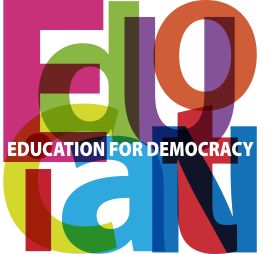Education policy
The Framework is a set of materials that can be used by education systems to equip young people with all of the competences that are needed to take action to defend and promote human rights, democracy and the rule of law, to participate effectively in a culture of democracy, and to live peacefully together with others in culturally diverse societies.
The Council of Europe Reference Framework of Competences for Democratic Culture (RFCDC)
Higher education plays a crucial role in developing the democratic culture without which democratic institutions and laws will not function in practice.
The Council of Europe’s action with regard to the digital life of children over the last decade has been aimed mainly at their safety and protection in the digital environment rather than their empowerment through education or the acquisition of competences for actively participating in digital society.
The main aim of the project is to highlight the commitment to democratic values and principles in the life and culture of schools in Council of Europe’s member states.
Council of Europe project “Free to Speak - Safe to Learn” Democratic Schools for All
Qualifications, which reflect the knowledge, understanding, ability to do and willingness to do (or abstain from doing) developed through an education programme, are also described at national level through national qualifications frameworks. These are tools for transparency, comparability and compatibility between education systems, including at higher education level.
From the start and as stated in the European Cultural Convention, the organisation recognised the importance of history as a basis for the education of the citizens of Europe and its role in bridging differences and bringing people together by establishing mutual understanding and confidence between the peoples of Europe.
Languages are a fundamental aspect of people’s lives and the democratic functioning of society. In response to the needs identified in or by its member states, the Council of Europe has been working over the past few decades to compile a set of resources made available to education authorities and professionals and benefiting all Europe’s citizens
The integration of migrants and the impact on it of their acquisition of competence in the language(s) of the host country are a focus for political debate and policy initiatives in a growing number of Council of Europe member states, as is demonstrated by the surveys carried out to date by the Council of Europe.
The linguistic integration of adult migrants (LIAM)
There is currently worldwide concern over corruption in education. This concern touches all Member States and all levels of education.
While some forms of corruption may be difficult to evaluate or quantify, no country today can claim to be totally exempt from corruption in the education sector.
The Council of Europe Platform on Ethics, Transparency and Integrity in Education (ETINED) will try to address this challenge through a genuinely European dialogue and by drawing upon the materials and norms developed by the Council of Europe over the years.
Ethics, transparency and integrity in education (ETINED)
The cross-cutting programme “Passing on the Remembrance of the Holocaust and prevention of crimes against humanity” comes within the institutional framework of the 1954 European Cultural Convention and Recommendation Rec(2001)15 on history teaching in twenty-first-century Europe.
Remembrance of the Holocaust and prevention of crimes against humanity
Education Department
Council of Europe
Agora Building
1, Quai Jacoutot
67075 Strasbourg Cedex
France



